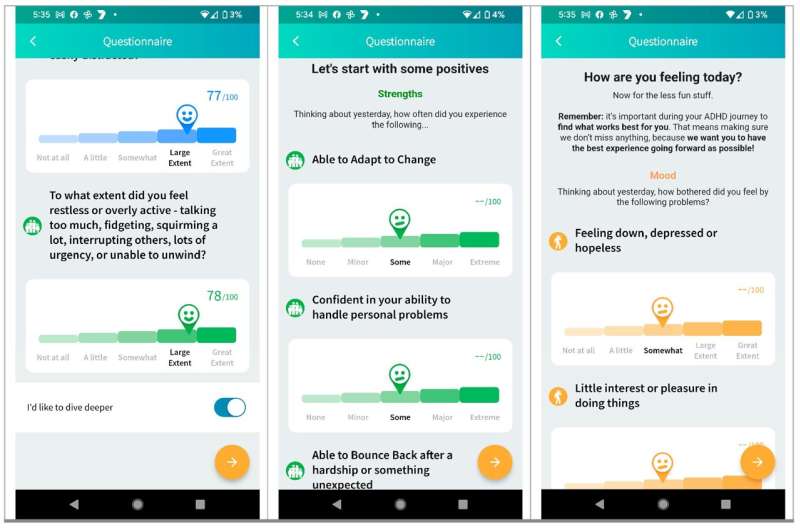This article has been reviewed according to Science X's editorial process and policies. Editors have highlighted the following attributes while ensuring the content's credibility:
fact-checked
peer-reviewed publication
trusted source
proofread
Study promotes digital help for adults with ADHD

Digital health experts at Flinders University are developing a mobile self-monitoring app model to assist adults with Attention-Deficit Hyperactivity Disorder (ADHD) take a more pro-active role in their "wellness journey."
Working with digital health technology provider goAct, the project aims to fill gaps in ADHD care and empower individual customers to manage their own affairs.
This digital innovation aims to streamline communications to integrated care between ADHD care consumers and service providers—and provide private and secure online solutions for adults with ADHD, says Translational Digital Health Senior Research Fellow Dr. Bronwin Patrickson, from the Flinders University College of Medicine and Public Health.
The research article, "Evolving Adult ADHD Care: Preparatory Evaluation of a Prototype Digital Service Model Innovation for ADHD Care," has been published in the International Journal of Environmental Research and Public Health.
"Although the awareness of adult ADHD has increased over time, many barriers persist and many go undiagnosed while only about one in four people who do receive a diagnosis receive treatment.
"Against the backdrop of ongoing debate about prevalence and ideal care for the condition, the diagnosis and treatment of adult ADHD faces many challenges both in Australia and worldwide."
One 2020 study estimates the global prevalence of persistent ADHD (with childhood onset) at 139.84 million and three times that number for symptomatic (regardless of childhood onset) adult ADHD (or 6.76% of the world population, or 366.33 million people).
Persistent adult ADHD, characterized by inattention or impulsive behavior in some cases, can have a profound effect on everyday lifestyle—including social and emotional well-being, relationships, academic and occupational outcomes and quality of life. The condition often decreases with advancing age.
Flinders Professor of Digital Health Niranjan Bidargaddi, working with experts in the field including clinical psychiatrists, says participants in the latest study gave valuable insight into what tools adults with ADHD found useful, and what clinical care and professional help they needed on a case-by-case basis.
"Digital health service innovations, including mHealth self-monitoring tools such as this, can significantly enhance future ADHD care services by providing more accessible assessment and treatment pathways and actively involve consumers in their mental health care plan," says Professor Bidargaddi, co-director of the Flinders Digital Health Research Center, based at Flinders University's Tonsley campus.
"Consumer feedback and more work on the technology will continue so we can refine this new ADHD care package to be both responsive and empowering to their needs."
More information: Bronwin Patrickson et al, Evolving Adult ADHD Care: Preparatory Evaluation of a Prototype Digital Service Model Innovation for ADHD Care, International Journal of Environmental Research and Public Health (2024). DOI: 10.3390/ijerph21050582





















